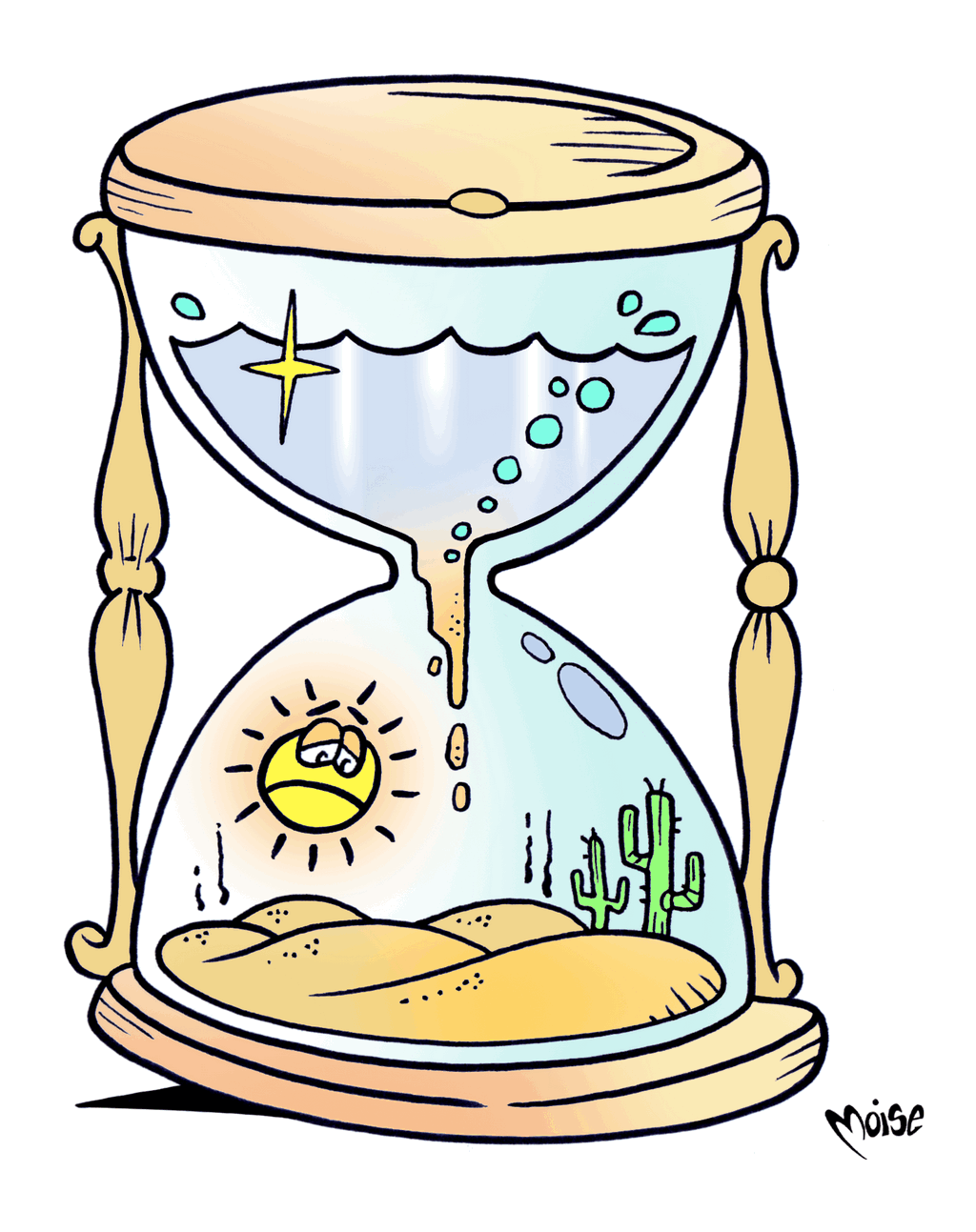
Available Water
 As we have seen, the percentage of water on Earth available for human consumption is really low. And the situation is destined to become worse… In fact, pollution, the excessive exploitation of aquifers, the construction of gigantic dams to produce energy (such as the “Three Gorges Dam” in China, with a capacity of no less than 22,000 million cubic metres!) negatively affect the natural renewal of water reserves. In addition, climate change, with the consequent phenomena of drought and desertification and the exponential increase in consumption of water due to demographic growth, make the situation alarming. To satisfy vital needs, a minimum quantity of 40 litres of water a day is necessary. Today 40% of the world’s population live below this threshold. What will happen in 2050 when our planet is predicted to be inhabited by 10 billion people?
Water resources are distributed unevenly in the world: whilst water is often in abundance but wasted in industrialised countries, in many developing countries, the lack of drinking water is one of the main causes of death and disease.
In this century, realistically, many wars will also be over water, which will be increasingly valuable and scarce. On all continents there are lakes and rivers that run through several countries and sharing the water has always been a potential cause of international tension (not by chance, the word "rival" derives from the Latin rivalis, a person who uses the same water course as another). In fact, today in the world, there are many examples of contention over water sources: the River Jordan in the Middle East; the Tigris and the Euphrates, common to Turkey, Syria and Iraq; the River Nile, a source of strong tension because of the countries it flows through; the Colorado River which reaches Mexico with a much reduced flow after being “intercepted” by the Hoover Dam on the US side; then there is the Indus, which flows between India and Pakistan; the Ganges, between India and Bangladesh; the Mekong, depleted by the Chinese, placing the production of rice in Indochina at great risk.
Water is, therefore, more precious than gold or oil. Let’s learn how to safeguard it and to appreciate its value.
As we have seen, the percentage of water on Earth available for human consumption is really low. And the situation is destined to become worse… In fact, pollution, the excessive exploitation of aquifers, the construction of gigantic dams to produce energy (such as the “Three Gorges Dam” in China, with a capacity of no less than 22,000 million cubic metres!) negatively affect the natural renewal of water reserves. In addition, climate change, with the consequent phenomena of drought and desertification and the exponential increase in consumption of water due to demographic growth, make the situation alarming. To satisfy vital needs, a minimum quantity of 40 litres of water a day is necessary. Today 40% of the world’s population live below this threshold. What will happen in 2050 when our planet is predicted to be inhabited by 10 billion people?
Water resources are distributed unevenly in the world: whilst water is often in abundance but wasted in industrialised countries, in many developing countries, the lack of drinking water is one of the main causes of death and disease.
In this century, realistically, many wars will also be over water, which will be increasingly valuable and scarce. On all continents there are lakes and rivers that run through several countries and sharing the water has always been a potential cause of international tension (not by chance, the word "rival" derives from the Latin rivalis, a person who uses the same water course as another). In fact, today in the world, there are many examples of contention over water sources: the River Jordan in the Middle East; the Tigris and the Euphrates, common to Turkey, Syria and Iraq; the River Nile, a source of strong tension because of the countries it flows through; the Colorado River which reaches Mexico with a much reduced flow after being “intercepted” by the Hoover Dam on the US side; then there is the Indus, which flows between India and Pakistan; the Ganges, between India and Bangladesh; the Mekong, depleted by the Chinese, placing the production of rice in Indochina at great risk.
Water is, therefore, more precious than gold or oil. Let’s learn how to safeguard it and to appreciate its value.





